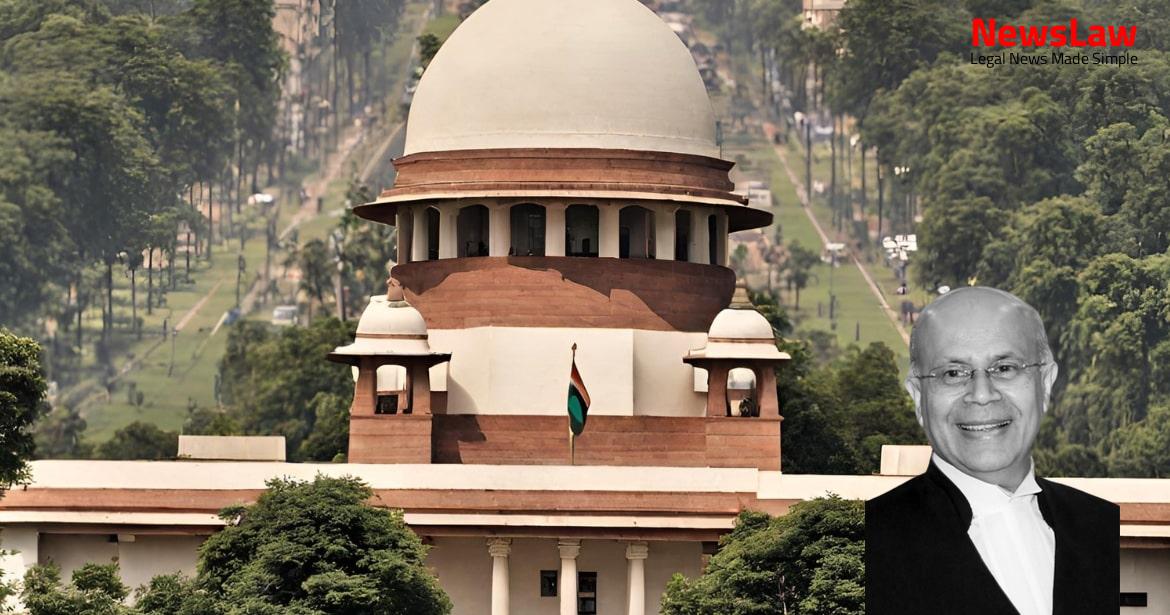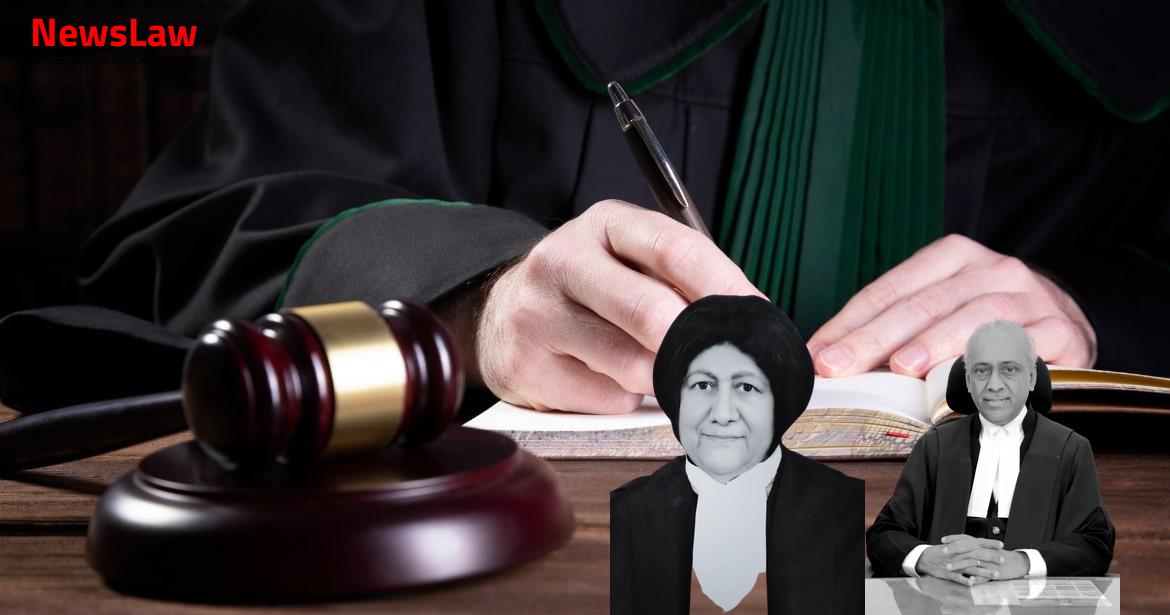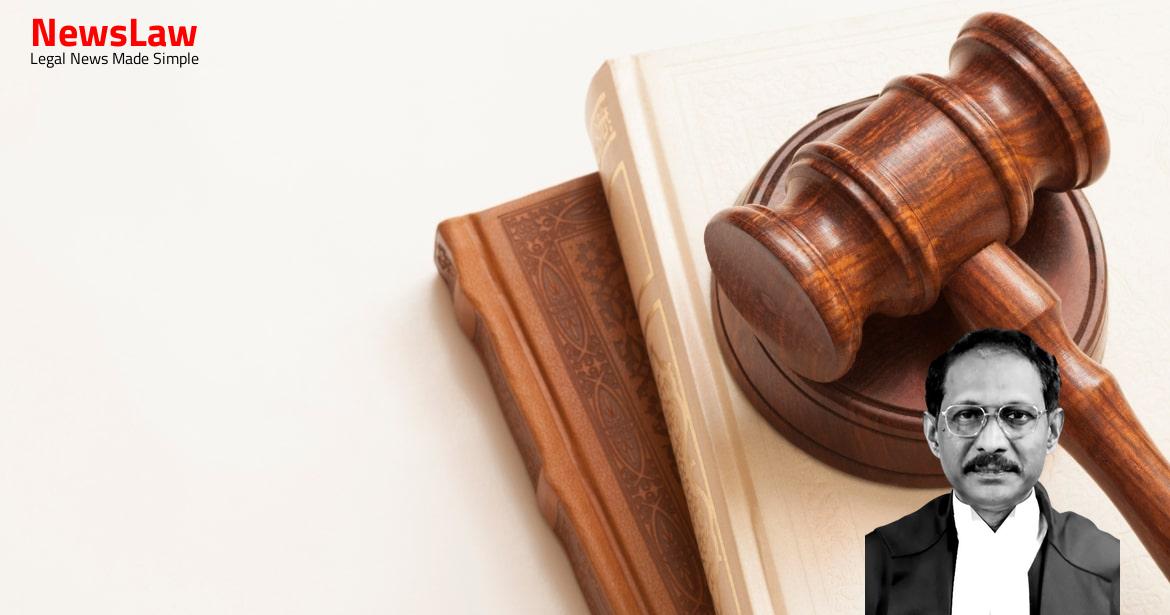Explore the legal intricacies of the National Company Law Tribunal’s inherent powers in handling insolvency resolution cases. Understanding how the NCLT can make orders to meet the ends of justice, including allowing withdrawal or settlement applications, is vital for stakeholders in the insolvency process. Stay informed about the legal framework that aims to enhance credit markets, promote entrepreneurship, and boost economic growth in the realm of insolvency resolution.
Facts
- Beacon Trusteeship issued an Enforcement Notice for full investment amount due to non-payment of interest coupon amount.
- Respondent Nos. 1 to 3 transferred shares into DEMAT Account as per share pledge agreement.
- Arbitration Proceedings initiated by the Corporate Debtor before High Court of Bombay.
- Supplemental Deed dated 14 March 2019 revised terms from DTD.
- NCLAT granted interim stay of publication under Section 13 of IBC based on settlement between parties.
- Opportunity given to settle disputes before NCLT under Section 12A of IBC.
- Joint application filed seeking time for settlement before NCLT.
- Appeal filed against NCLT’s order allowing CIRP initiation.
- Beacon Trusteeship defaulted in paying second tranche of Rs. 8 Crores.
- Corporate Debtor filed under Section 7 of IBC due to default in payment.
- Corporate Debtor’s statement of claim filed seeking damages.
- Details about the Corporate Debtor’s business, investments, and employees provided.
- Parties executed Debenture Trust Deed agreeing to terms of NCDs.
- Application under Section 12A of IBC filed with consent of IRP for settlement.
- NCLAT stayed formation of CoC but permitted IRP to proceed with CIRP despite settlement.
- Settlement reached by parties on 8 August 2021.
- Defence and counter claim filed by Respondents for payment of claim amount.
- Erstwhile Director of Corporate Debtor is the Appellant in the case.
- Joint application filed for deferring order pending settlement.
- First tranche debentures amount released by Beacon Trusteeship.
- Appeal filed against interim order of NCLAT not restraining IRP from proceeding with CIRP.
- NCLT Mumbai Bench rejected request for further deferment of orders for settlement
- NCLT admitted and allowed application under Section 7 of the IBC against Corporate Debtor
- Arbitrator passed interim award in favour of Beacon Trusteeship and other Respondents, directing payment of Rs.72,06,99,244/- with interest
- Appellant and Corporate Debtor filed arbitration petition under Section 34 of the Arbitration and Conciliation Act, 1996 before High Court of Bombay
- NCLT Mumbai Bench reserved its order on 13 May 2021
Also Read: Legal Analysis of Appeal Provisions in Admiralty and Commercial Court Cases
Arguments
- Mr. Mukul Rohtagi, learned Senior Counsel appearing for the Appellant, highlighted the argument made on behalf of the Petitioner.
- The argument was presented before a Bench consisting of S. Abdul Nazeer and Krishna Murari, J.J.
- The Bench listened to the arguments put forth by both parties.
Also Read: Analysis of Substantial Questions of Law in Adoption Dispute
Analysis
- Section 12A of the IBC allows for withdrawal of an application under Sections 7 to 9 if approved by the Committee of Creditors.
- The withdrawal of an application for insolvency does not prevent another financial creditor from initiating proceedings under the IBC.
- The urgency to adhere to resolution process timelines should not hinder settlements.
- The NCLT can allow withdrawal or settlement applications even before the Committee of Creditors is constituted.
- The purpose of the IBC is to streamline insolvency resolution for all stakeholders’ benefit.
- The legal framework for insolvency resolution aims to enhance credit markets, promote entrepreneurship, and boost economic growth.
- NCLT Rule 11 enables the tribunals to make orders for justice, including allowing withdrawal of CIRP applications to facilitate business operations.
- Allowing withdrawal of CIRP applications post-settlement benefits the Corporate Debtor’s business operations and employees.
- Rule 11 of the NCLT Rules grants inherent powers to the Tribunal
- The Tribunal can make necessary orders to meet the ends of justice
- These inherent powers are not limited by the rules
- Before a Committee of Creditors is constituted, a party can approach the National Company Law Tribunal directly.
- The Tribunal, under Rule 11 of NCLT Rules, has the power to allow or disallow an application for withdrawal or settlement.
- An appeal under Section 62 of the IBC does not involve determination of a question of law by the Court.
- The impugned order is interim and does not merit interference.
- This Court finds no grounds to interfere with the order in question.
Also Read: Legal Clarity on Post-Sale Charges
Decision
- The appeal is dismissed.
Case Title: ASHOK G. RAJANI Vs. BEACON TRUSTEESHIP LTD. (2022 INSC 1003)
Case Number: C.A. No.-004911 / 2021



